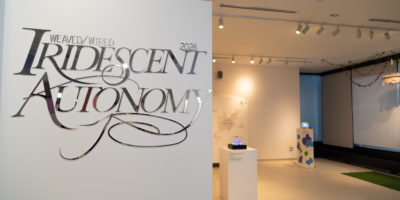By Kristen Vinakmens
There’s a riddle in Filipino culture called the crab theory. “Why don’t you have to put a lid on a basket of Filipino crabs?” asks Len Ryan Cervantes, editor-in-chief of BrownScene magazine. “The answer is that none of them will ever get out of the basket for the simple reason that when one gets to the top, another will surely grab it and pull it back down.”
Sitting down for a bite at Tamarind, a Thai/Filipino restaurant near Yonge and Wellesley streets, Cervantes says the crab theory is not so much a riddle as it is a reality in Filipino culture. Though the mentality comes from the older Filipino generation, there is still a certain competitiveness that Cervantes says is a key factor to isolating Filipino people in their culture.
As a result, Cervantes has come out with the magazine in order to unite the Filipino community.
A lot of people in the Filipino community don’t want Cervantes, a 1998 radio and television arts grad, and his friend Roel Sarmago to start the magazine. “We’ve proven them wrong,” he says.
In its first year of publication, the quarterly magazine has achieve some great response from the Filipino community. Though it’s still smaller in size than Cervantes would like it to be (about the dimensions of TV Guide), the magazine, which is available at Tower Records for a paltry two dollars, has come a long way since the purely photocopied pages of its first issues. “It takes the average magazine about five years to grow into something,” Cervantes says. “We’ve only had one year.”
One of the things that was changed was its name. The magazine was originally called BrownSugar, but Cervantes and his cohorts recently discovered that name is property of Larry Flynt and Hustler magazine. They were disappointed with the loss of such a cool name, but renamed the magazine to BrownScene to avoid any confusion or possible lawsuits.
There are seven core members of the magazine, six of which are RYerson students. Other staff includes journalism graduate Nicole Muller Gass, who now works with Flare magazine. But BrownScene has writers from all over the world, all of whom are experts in their respective fields. Articles range from profiles of key players in the Filipino music scene, including Filipino American master turntablists Q-bert and the Invisibl Skratch Piklz, to more serious issues such as violence against Filipino youth.
Cervantes was born in Canada, but his parents were raised in the Philippines, and taught by American priests in Jesuit schools. He says Filipino culture is a mish-mash of influences, but the Spanish influence is by far the most prevalent.
But the culture is not an easy one to grasp. “There are no classes where you can learn about Filipino history, Filipino culture,” Cervantes says. “You can’t even learn that stuff from your parents. Most of the time they have no idea, unfortunately.”
During his time at university, Cervantes joined the Filipino Canadian Association of Ryerson. He feels he received more from that experience than anything in his university career. He says the association allows Filipino students to connect with the community, learn more about the culture of just find out what’s going on Friday night. He says that for himself and many others, the club changed their lives. “It made the difference for our experience at Ryerson. I discovered my culture,” he says. Cervantes became president of the association in 1996.
Cervantes says BrownScene is going to start branching out to reach Filipino people all over the world. In MArch, a mass E-mail with an on-line version of the magazine will be sent out ot subscribers. And on June 12—Filipino National Day—when the Philippines gained independence from Spain—the website www.brownscene.com will be launched. The site’s contents will reflect the magazine, but it will also have radio broadcasts and eventually television programs.
“What we’re doing it multiplying our mediums,” he says. “But we’re still trying to give out the same message.”
And that message is one of unity. “If we’re going to make it as a people in this country, in this world, we’ve got to do it all together, or else we’re going to get lost in the shuffle,” he says.












Leave a Reply